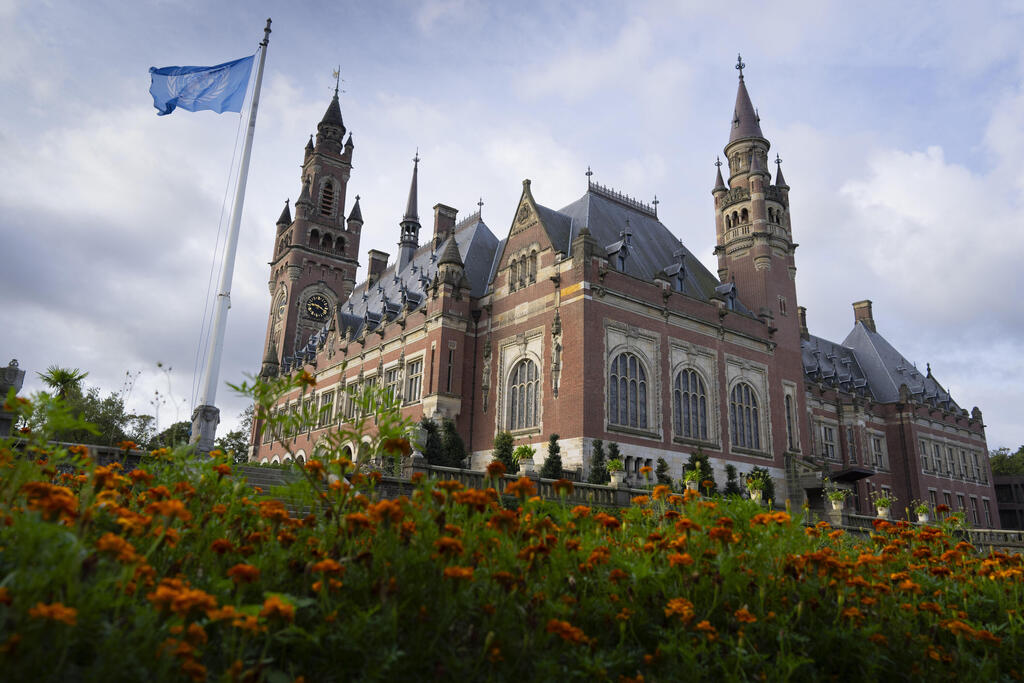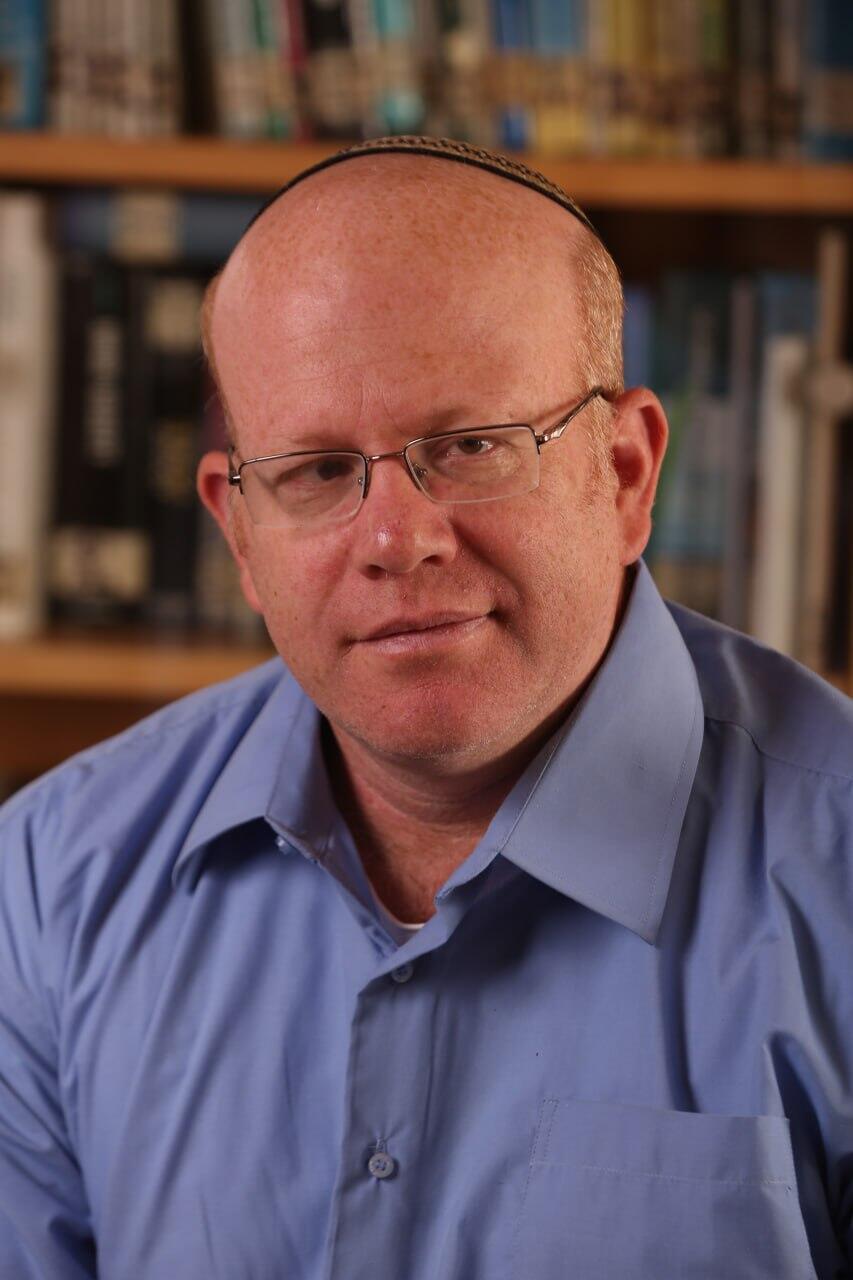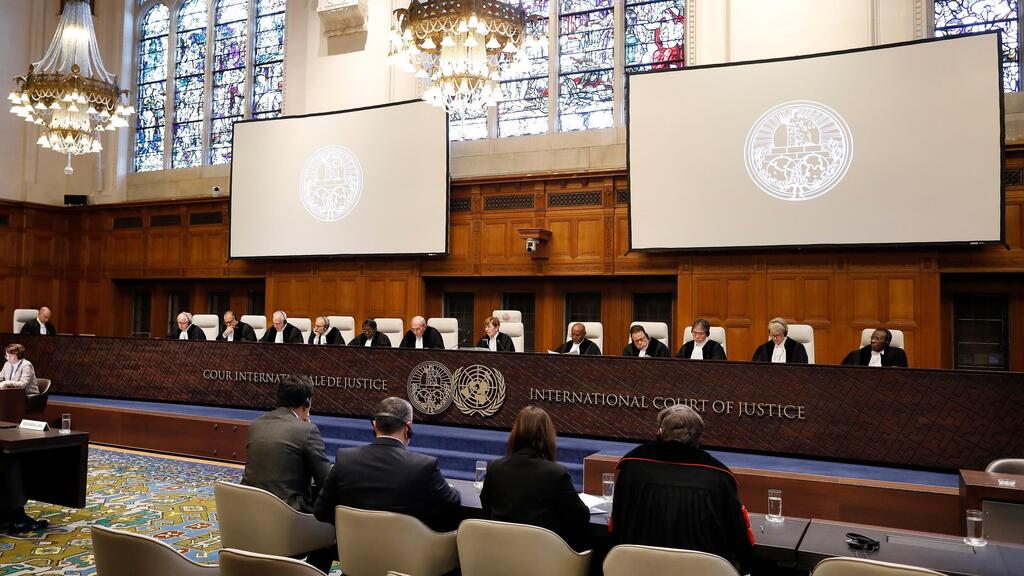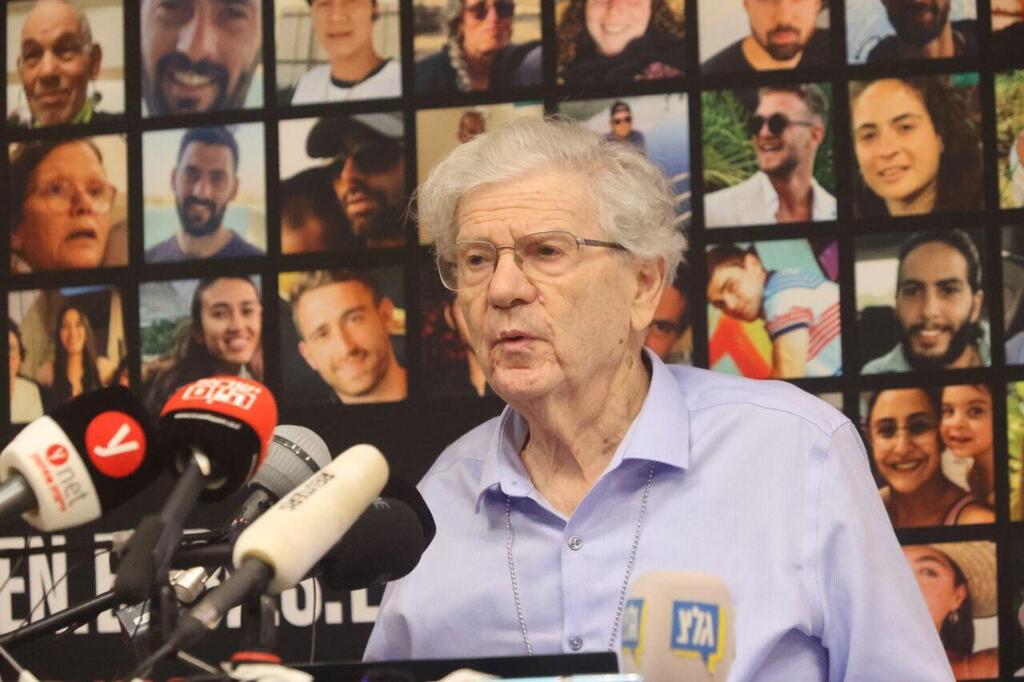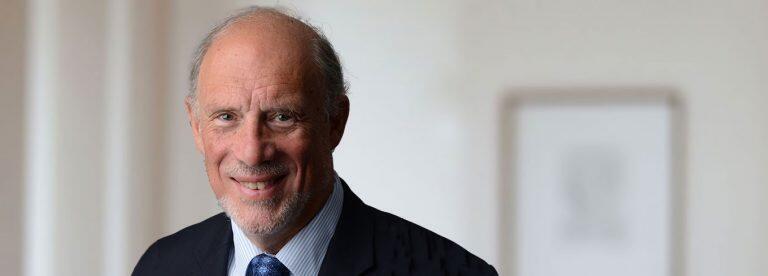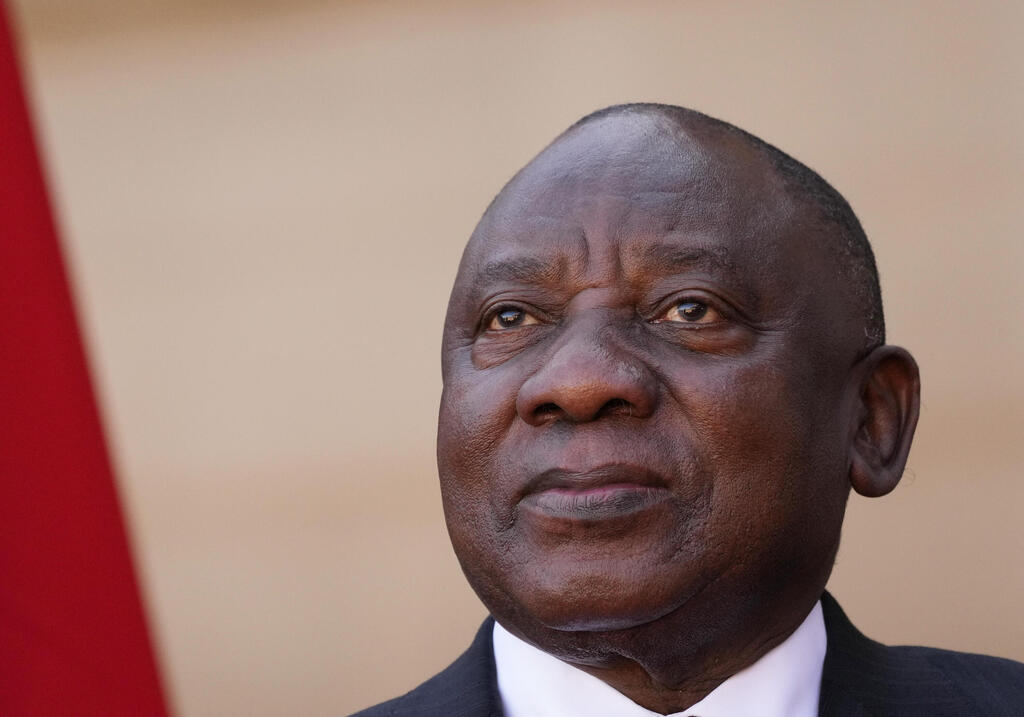The International Court of Justice in the Hague is set to commence preliminary discussions regarding South Africa's accusation of "genocide" against Israel. South Africa will lay its case out, and the following day, Israel will respond to them The discussion will take place in front of an international panel of judges, one of whom will be Israel's own Aharon Barak, former Israeli Supreme Court Chief Justice.
Read more:
Professor Amichai Cohen, a member of the Faculty of Law at Ono Academic College, explains the challenges Israel faces in light of South Africa's appeal to the ICJ. "Israel is putting much effort and resources, both in monetary and legal terms," he says.
South Africa's initial appeal on the matter tracks back to December, asking the ICJ to officially determine Israel has violated the "convention on the Prevention and Punishment of the Crime of Genocide", and demanding the ICJ issue a decree stating Israel must adhere to the cessation of all aggression in Gaza.
What is the ICJ, anyway? Why did Israel choose to take part in these discussions? What is required to establish Israel is engaging in genocide and what are the chances that will happen? Prof. Cohen explains all the ins and out.
What is the International Court of Justice and from where does it gain its authority?
Located in the Hague, a coastal city on the western edge of the Netherlands, The ICJ has two primary mandates: Discuss conflicts between UN member states and provide legal input at the request of the UN General Assembly, or other satellite organizations.
It has the authority to adjudicate disputes between states, provided that the defendant state gives its consent. This consent can be given for a particular dispute or in advance, either through a formal notification to the court or by means of an international agreement explicitly granting the ICJ jurisdiction to hear disputes arising from that agreement. In the present situation, Israel has ratified the Convention on the Prevention and Punishment of the Crime of Genocide, and it is this agreement that confers jurisdiction upon the court to consider the lawsuit initiated by South Africa.
Ever since its founding in 1947, the ICJ has taken up 191 cases, mostly made up of territorial disputes, where its verdict is adhered to in the lion's share of cases. The panel consists of 15 judges handpicked by the UN General Assembly. Currently, judges are from the United States, France, Japan, Germany, Australia, Slovakia, Brazil, India, Jamaica, Uganda, China, Somalia, Russia, Lebanon and Morocco.
In that case, how was Aharon Barak appointed to the panel?
Given it is an accused state, Israel has the right to appoint one of its own to the panel. Prime Minister Netanyahu, with the recommendation of Attorney General Gali Baharav-Miara and much to the chagrin of multiple coalition partners, appointed Aharon Barak, a man who has had a profound influence on Israeli judiciary over the years. Conversely, South Africa has the same right, thus it has appointed its Supreme Court Vice President.
The significance of Barak's appointment extends far beyond the mere presence of one additional judge in the proceedings. Barak's primary objective is to represent the Israeli perspective in the process. His status as one of the most esteemed judges worldwide, his extensive judicial experience, and his groundbreaking contributions to international law will undoubtedly shape the perspectives of his fellow judges. The immense trust placed in him as an impartial judge unafraid to challenge those in positions of power further enhances his esteemed reputation. Additionally, Barak's personal history as a Holocaust survivor is expected to lend considerable weight to his positions in the genocide petition.
That said, this does not, under any circumstances, guarantee Israel manages to walk away clean, but it does help smoothen out the rough edges of South Africa's nefarious claims.
Former Supreme Court Justice, Elyakim Rubinshtain, spoke to Ynet Live about the appointment: "I think it's the right call. I've known Aharon Barak for over 50 years, and his experience is unparalleled. He's written countless verdicts and articles about law and security. He has a special stance, shared by no other Israeli judge."
Regarding Barak's past as a Holocaust survivor, Rubinshtain said: "Barak has two lessons from the Holocaust: The first is the need for a Jewish state, since most doors were closed to Jews right before the Holocaust, and the second is the importance of maintaining and safeguarding human rights. Israel must adhere to that in order to avoid a recurrence of the Holocaust. If there a genocide here, it was by Hamas to the residents of the Gaza border region."
What is the difference between the International Criminal Court and the International Court of Justice?
Both operate in the Hague, but otherwise have no relation. The ICC handles disputes among individuals, not countries.
Is there currently another ICJ case pending where Israel is involved?
At the moment, there is no other case with Israel acting either as a plaintiff or a defendant. However, a 2004 verdict established that the building of the fence in the West Bank violates international law, and the UN General Assembly is discussing the legality of the Israeli occupation in the West Bank.
How does the ICJ reach a verdict in these cases?
ICJ verdict are in strict accordance to international law, with attorneys representing both sides, laying down their cases. Israel is allowed to have up to 4 representatives, where one of those has already been chosen. He is 76-year-old Prof. Malcolm Shaw, a Human Rights and the Law of Territory specialist from the Hebrew University in Jerusalem.
At the tail end of what might prove to be a lengthy process, a majority opinion will be written down, serving as a verdict. Dissenting judges will write their own minority opinions.
Up until that point, can the ICJ order temporary aid?
In situations where the claim is deemed credible, the court has the authority to issue temporary relief measures to Gaza, recognizing the potential exacerbation of the situation if urgent and temporary aid is not provided.
What is this genocide convention upon which Israel is judged?
The Genocide Convention, formally known as the Convention on the Prevention and Punishment of the Crime of Genocide, is an international treaty that was adopted by the United Nations General Assembly in 1948. It entered into force on January 12, 1951. The convention was established in response to the recognition of genocide as a crime under international law.
The Genocide Convention has been ratified or acceded to by 153 states as of April 2022. Its primary objective is to prevent and punish the crime of genocide. The convention outlines several obligations for states, including the obligation not to commit genocide, the obligation to prevent genocide, the obligation to punish genocide, and the obligation to enact necessary legislation to give effect to the provisions of the convention.
It's important to separate the basis of intent from the factual basis. The Genocide Convention outlines a range of acts that, when committed with the necessary intent, constitute the factual basis of the crime of genocide. These acts include the intentional killing of individuals belonging to a specific group, inflicting serious physical or mental harm upon individuals belonging to the group, deliberately subjecting the group to conditions of life that are intended to bring about its physical destruction, in whole or in part, imposing measures to prevent births within the group, and forcibly transferring children of the group to another group. These acts, when executed with the required intent, are considered fundamental components of the crime of genocide as defined by the convention.
The basis of intent to destroy separates genocide from other severe crimes according to international law, making it "the crime of all crimes", meaning the verdict affirms the intent to completely annihilate an ethnic or religious group.
What are the state's obligations according to the convention?
According to the Genocide Convention, the state's obligation is to prevent the following violations of the Convention - and to punish for it: Committing genocide, conspiring to commit genocide, direct and public incitement to commit genocide, attempting to commit genocide, and participating in genocide. According to the court's ruling, "participating" in the extermination of a people also means assisting in carrying out the extermination of a people.
How does one prove intent to commit genocide?
One of the ways is citing specific declarations and statements made by heads of states or by those committing the crime, though it's safe to say that in the lion's share of cases, the committing party will conceal the intent. That said, the ICJ has established it's not a prerequisite, so long as a systematic execution of crimes is conducted, in a way that cannot be explained without a detailed plan to execute the crime of genocide. In practice, though, verdicts handed down by the ICJ pose notable difficulties to learn about the intent by simply observing the crimes, given no outright statements were made.
Why did Israel agree to appear before the ICJ?
The mere fact South Africa leveled those accusations forces Israel to debate it in front of the court. Article 9 of the Prevention of Genocide Convention states all disputes between member states will be adjourned before the court. Thus, Israel has made a commitment to submit to the ICJ's authority when it comes to violating the convention, and regardless, it's obligated to appear under international law. Failure to appear constitutes a violation of the convention.
It bears mentioning that there have been cases where nations did not show up to the ICJ deliberations, like Russia when Ukraine filed a ICJ suit against them for violating the genocide prevention convention. Still, cases like these are somewhat infrequent. In almost all cases, countries send a delegation. Either way, not showing up doesn't make it go away. Decisions are simply made without you.
Why does South Africa have it in for Israel?
For quite a while now, South Africa has been a reliable Palestinian partner whenever Israel is involved. South Africa recalled its ambassador in Israel back in 2018, never sending anyone else again. Last month, they recalled all remaining diplomats from Israel as a form of protest for the Gaza offensive, and has announced diplomatic relations with Israel are under review.
This might also be interpreted as a late response to Israel's support of the Apartheid regime in South Africa that took place for decades during the 20th century, ending in the early 90s. With that in mind, South Africa views Israel as a colonial state, thus ideologically more aligned with the Palestinians, supposedly the "oppressed" in this scenario.
What are South Africa's legal claims?
South Africa claims that during its Gaza offensive, Israel has been committing international law violations, meeting the prerequisite for declaring the act of genocide, citing the number of civilian casualties, those affected by the humanitarian crisis in Gaza and the immense destruction within the strip, rendering all buildings uninhabitable.
When it comes to the intent of committing genocide, South Africa bases its suit on a string of controversial statements made by Israeli politicians and IDF generals, past and present. South Africa interprets those as the intent to commit genocide. In fact, their suit dedicates an entire chapter just for the inflammatory statements made by Israeli notables, whether its members of the Knesset, journalists, professors, soldiers who have fought in Gaza and even musical artists. And yes, Amichai Eliyahu's statement about nuking Gaza is front and center.
How will Israel counter?
When it comes to the factual basis, Israel says it abides by international law, stating the war in Gaza is a self-defense endeavor, following the massacre of 1,500 civilians and the kidnapping of hundreds to Gaza.
As far as the intent goes, Israel will claim inflammatory statements were taken out of context, and that those who made them are not counted in the inner circle of decision makers. Those that are counted in the decision making process emphatically state Israel's fight is with Hamas, not the entire Gaza population.
What are South Africa's chances of succeeding in the suit?
Up until now, ICJ rulings when it comes to genocide have been fairly conservative, and Israel's claims seem to have a good basis in terms of credibility and validity.
That said, Israel could have a problem when it comes to the issue of incitement, as the myriad of reckless statements make it quite difficult to rationalize it all away by simply claiming those were "taken out of context", and incitement stands as its own crime. The fact these statements have gone unpunished by the "responsible adults" in the Israeli government, could serve as evidence of tacit agreement and a violation on Israel's part when it comes to preventing incitement for genocide.
What is the meaning of the upcoming discussion on Thursday?
A preliminary hearing is scheduled for Thursday and Friday, with the primary significance being the potential issuance of a temporary order against Israel. As previously mentioned, the court possesses the authority to grant temporary orders in cases of urgency. Temporary relief measures can encompass a wide range of actions, such as instructing Israel to refrain from committing genocide.
They can also extend to practical and impactful measures, such as an immediate ceasefire or unrestricted access for humanitarian aid. It appears that Israel's primary focus and involvement in the proceedings are centered around ensuring that any remedies determined by the court are not perceived as impeding the ongoing war efforts in Gaza.
What happens to Israel if it ignores an order issued by the ICJ?
In the short term - Nothing. The ICJ has no enforcement arm, but violating a direct ICJ order is perceived very negatively by the international community, isolating Israel diplomatically. It could result in countries refusing to sell arms to Israel, especially if it violates a ceasefire order from the ICJ.
This is an ongoing effort by South Africa and the Palestinians to drag Israel all the way to being considered a pariah, so law abiding states will think twice about dealing with. It could put Israel in a very problematic position.


